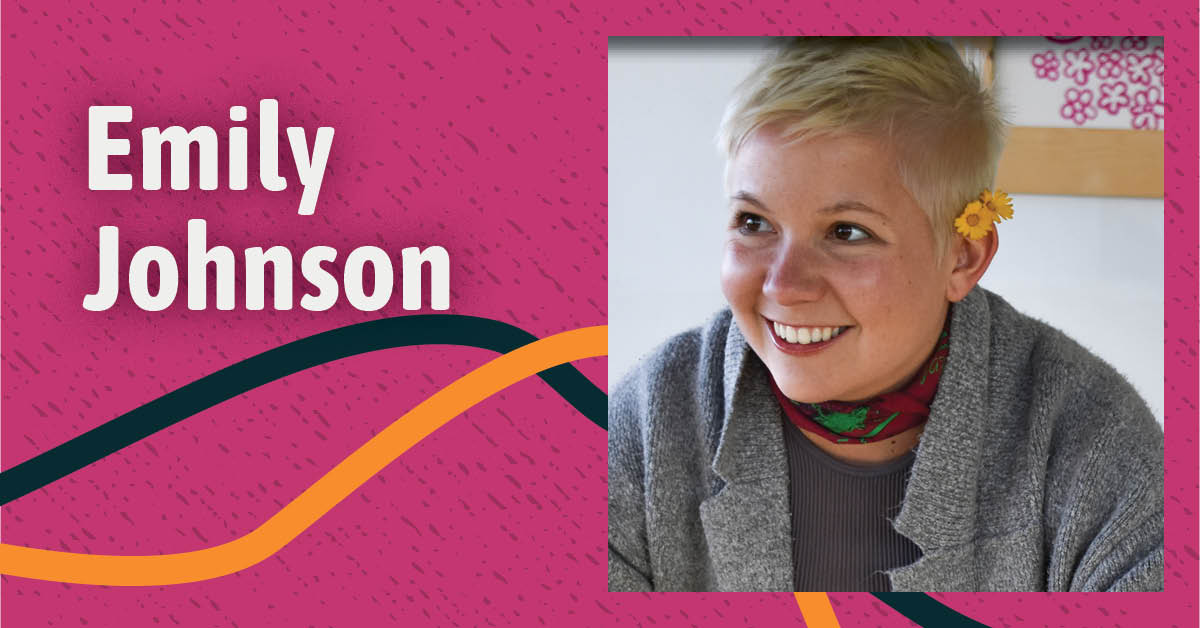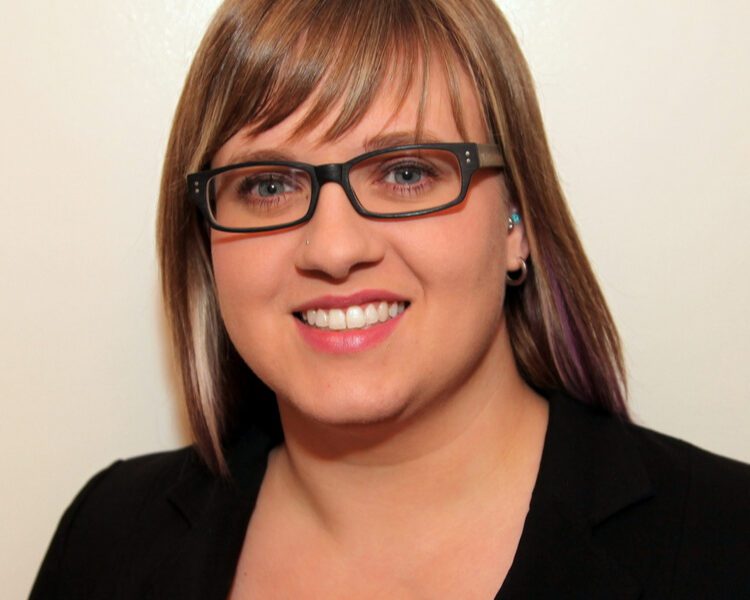Missouri native Emily Johnson earned her undergraduate degree with the idea she’d make an impact in the nonprofit arts world.
Instead, she bought a one-way ticket to India—a choice that led her to pursue her MBA in Social Entrepreneurship and Strategic Leadership at Antioch University Santa Barbara.
“I needed time to figure out how to be a better human on this planet,” she said.
She spent a year living in an ashram and studying classical yoga.
She also worked for a nonprofit in Calcutta (headquartered in Santa Barbara) whose mission is to counteract child trafficking by providing educational and vocational opportunities for women.
Its broader vision is protecting the environment.
“Providing tools for women in communities is a great first start to having community and cultural sustainability,” she said. “It creates a ripple effect.”
She found in her work in India that the typical fundraising model for nonprofits is not sustainable. “There are not enough people affecting a system of change,” she said.
By working with leaders of large corporations in India, she realized something new.
“If these leaders become more self-aware you won’t have to ask them to do better or good – it would happen with the responsibility of self-awareness,” she said. “Becoming more self-aware is a strategy for more effective and socially-impactful leadership.”
Her time spent there inspired her to pursue her MBA.
“I wanted to be able to affect change in a structural way by working for nonprofits and making them replicable and scalable,” she said. “I wanted to address the cultural perception of nonprofits as non-businesses.”
At the beginning of her MBA program four years ago, she was approached by the nonprofit Blue Sky Center to be a partner in the organization.
“Most nonprofits start with an idea and mission and build assets and talent around that mission,” she said. “Blue Sky Center started as assets, a location and equipment and they built their mission around them.”
The organization is located in the Cuyama Valley in the Central Coast region, a rural environment, and a product of the once-booming oil industry. Its mission today is to regenerate the economy, land, and communities of the valley through equitable partnerships and by sharing scalable models with other communities, at the same time promoting grassroots empowerment and de-politicizing climate change. A few ways the organization does this is by partnering with academic institutions to create educational opportunities; developing workspace and tools for professional artists and designers; providing space and support for small businesses utilizing the center’s repurposed buildings and shop spaces; and developing programming for youth culinary arts and nutritional education on the center’s 300-plus acres of agricultural land.
Building a viable business plan to carry out the organization’s mission was Johnson’s MBA capstone project
Johnson, who started at Blue Sky Center as an independent contractor, is now the organization’s executive director.
“Most of my professors were in the professional field while they were teaching,” she said. “I had perspectives from different industries. I needed that mentorship of how to integrate what I was learning into the organization I work for.”
Anna Kwong, the director of AUSB’s MBA program, was largely responsible for her promotion.
“She helped me be confident as a woman leader,” she said. “She pushed and challenged me in a way that was fair and helped me step into where I need to be in the organization. A skill set I took away was being able to put into words the impact I’m creating at Blue Sky Center in an impactful and concise manner. Before my MBA I didn’t have a focus. Through her mentorship, I gained confidence.”
As someone who grew up in a rural town, Johnson said she feels close to Blue Sky Center’s mission of rural economic development.
“Through my MBA I got to learn a lot more on why it isn’t a social cause but a good investment,” she said. “It taught me you can think about social and environmental change or whatever change you’re passionate about through an economic lens, through private and public partnerships—collaborations that exist to create a community’s capacity to be resilient. It’s the only way forward for us to think about our nation as a whole.”




